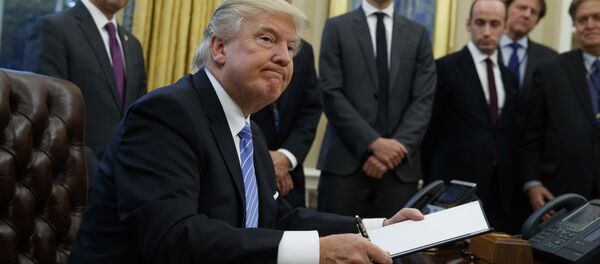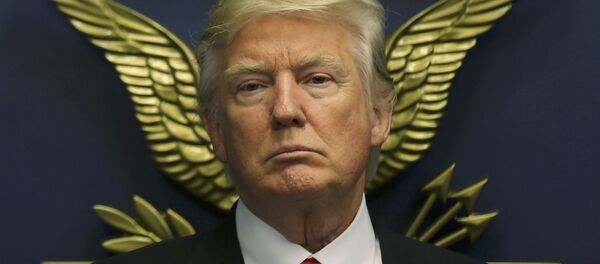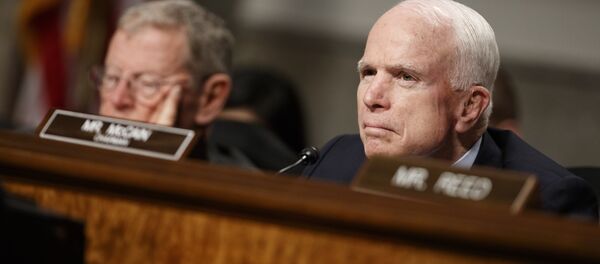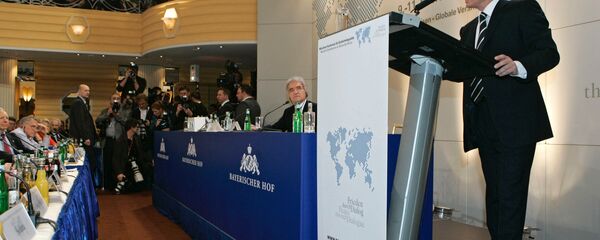Asked to comment on this apparent flip-flop by Trump, who had earlier hinted that he would "take a look" at recognizing Crimea as part of Russia, and said that the Crimean people "would rather be with Russia," The Duran political author Adam Garrie explained why Spicer's comment didn't just border on the absurd, but completely crossed that boundary.
"Crimea was of course part of Russia ever since 1783. Before that it was part of the Crimean Khanate of the Ottoman Empire; so I don't know who they want to 'return' it to," Garrie said, speaking to Radio Sputnik.
"The whole situation is absurd," the journalist noted, particularly given the US's positioning itself as a country that promotes democratic values, and the fact that an overwhelming majority of Crimeans "voted to return home to their historical mother country of Russia. They should be praising it! It was done without a shot being fired, it was done smoothly and peacefully."
In March 2014, a majority of over 95% of Crimeans voted to break off from post-Maidan Ukraine and to rejoin Russia, in a snap referendum organized by the peninsula's government.
Effectively, Garrie suggested that the US position on Crimea is just as absurd as it would be for Kremlin Spokesman Dmitri Peskov to come out and say that the US's western states including California should be 'returned' to Mexico, with Moscow now not recognizing the 1848 Treaty of Guadalupe Hidalgo for some reason.
"So the whole thing about 'we want to get on with you and want to have good relations, but please give up your territory that's been historically part of Russia, and just voted democratically in overwhelming numbers to rejoin' is a bit like saying 'I want to be your best friend, but can we please cut off your left arm to make things a bit easier'," Garrie emphasized. "It just doesn't follow any logic."
The journalist noted that he "expected more of the Trump administration." Unfortunately, he said, "there's a war going on inside the administration, and at least in terms of rhetoric, policies of reconciliation toward Russia seem to be an early victim in this Trump civil war."
"When it comes to Iran, all I'll say is that I don't know how to say 'pass the popcorn' in Farsi, but if I were in Tehran at this very moment, I'm sure I'd learn that quite soon," the journalist quipped.
As far as America's Russia policy is concerned, Garrie pointed out that "there's a big part of the US deep state, – the Democratic Party as a whole and the neocon faction of the Republican Party, led by John McCain and Lindsey Graham, that will do anything to preserve the anti-Russian attitudes coming out of Washington. Some stand to gain materially by it – we all know about the military-industrial complex…and some are just ideologically dogmatic to the point of being, frankly, stupid," he noted.
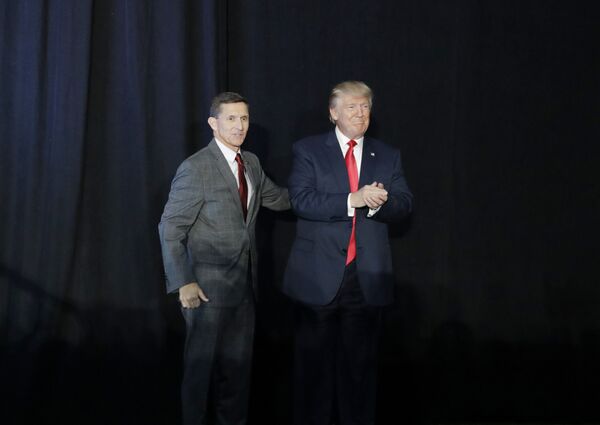
Garrie noted, for instance, that if it was the German ambassador whom Flynn called, it would have been a non-story. "But because Russia was involved, the people who hate Russia, and hate the idea of a Trump administration having good relations with Russia, they pounced, and as a result, Flynn is out." Ultimately, the journalist said that Flynn was a casualty of these powers that be. "The mainstream media, the political opponents of reconciliation between the US and Russia wanted blood, and it was sort of a night of the long knives. The first person to fall on his own sword was Flynn. I don't think he should have resigned; he did nothing illegal or untoward."
"They are trying to accuse Russia of everything under the sun," Garrie stressed. The NYT allegations are just "one example of the at times bizarre things that Russia is accused of…They will stop at nothing to say that Russia's done everything from invade countries it hasn't, to rig elections it hasn't, to somehow being able to manipulate opinion, all in an age of an open, free media. It's the age of the internet, but I don't know if the people at CNN have noticed it…This weird, neo-McCarthyist rhetoric that somehow someone in Moscow is pulling the strings and controlling public opinion is nonsense."
Warning of the power of what he calls this "media-industrial complex," Garie explained that "all you need to do is demonize a foreign leader, or a foreign power, and gradually it will allow the politicians to make the march to war. You saw it in Iraq, where a dispute over debt relief and oil theft turned into a kind of moral crusade which ended in sanctions, the decapitation of Iraqi power, and of course set up the 2003 invasion of Iraq, which unleashed terrorism where there was none, created ISIS, and we all know how that ended…"
As for Russia, the journalist suggested that he believes that its demonization is more difficult to sustain, particularly in the US. "I'm sure in the holier than thou neoliberal circles of places like New York and San Francisco, it sells quite well. But to the rest of America, I'm not sure," he noted. "The rest of America is quite conservative. They voted for Trump. They voted for a Republican Party which they want to be more conservative if anything. Russia is not the Islamic Republic of Iran; Russia is not Communist, atheist China."
"Russia, Garie recalled, is a conservative country –frankly their version of conservatism is quite a bit more moderate than some of the fringe elements of the Republicans in the US. But it's a Christian country, and a lot of conservative voters in America are very worried that the Christian heritage of the US is being eroded by a kind of post-modern ultra-liberalism. These people look to Russia as an example. So when these people see these deep state figures, this media-industrial complex, going after a conservative Christian country which poses no tangible threat to the United States, I don't think they're going to buy the lie."
Garie emphasized that "increasingly, people throughout the world, including in the West, are looking to Russia as an example…in things like promoting stability, promoting a country with moderate conservative values, but one that's functional, modern, technologically moving forward every day, defending the interests of her people, and in the case of Syria, actually fighting the war against terrorism in a more meaningful way than any other power outside the Middle East." With this in mind, he noted, attempts to demonize Russia are extremely difficult to sustain.


